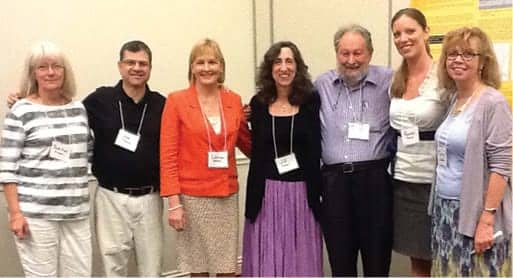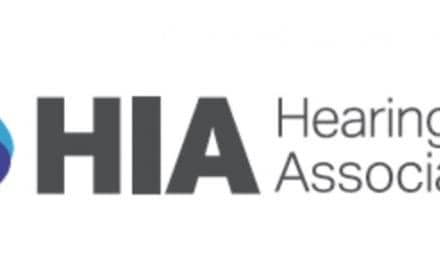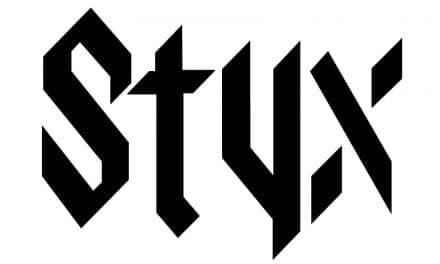By Karl E. Strom
The 7th International Adult AR Conference Held in Florida
The Hearing Rehabilitation Foundation (HRF) and the University of South Florida (USF) co-hosted the 7th International Adult Aural Rehabilitation Conference at the Sirata Resort and Conference Center in St. Pete Beach, Fla, in late May.
The meeting is held every 2 years, and attracts participants from around the globe. This year’s conference, which was supported by donations from MED-EL Worldwide, Oticon US, Widex US, and Starkey, attracted over 70 registrants, and included representatives from Australia, Austria, Canada, Denmark, Germany, New Zealand, the United Kingdom, and the United States. The Invited Speakers at the conference were Samira Anderson from the University of Maryland, Melanie Ferguson from the National Hearing Biomedical Research Unit in Nottingham, UK, and Jean-Pierre Gagné from the University of Montreal, Canada.
The theme of the conference was “Maximizing the benefits of technology through innovative intervention,” and papers on the first day looked at improving auditory training opportunities for adults with acquired hearing losses. Melanie Ferguson introduced the topic in her presentation, and she was followed by Samira Anderson who showed the positive results obtained by older adults who had undergone an auditory training program. Presentations throughout the day emphasized that there is a growing awareness of the need for such training opportunities for older adults, presented either in the clinic, or via computer-based or online resources.
Jean-Pierre Gagné opened proceedings on the second day with an overview of studies conducted to determine the amount of effort required to understand speech in difficult listening conditions. On the afternoon of the second day, there was a special presentation by representatives from the Academy of Rehabilitative Audiology. This session was chaired by Joe Montano and had as its theme, “Patient Centered Care.” Louise Hickson, from the University of Queensland in Australia, spoke about work by her team to improve the content, design, and readability of hearing aid user guides. Papers presented during this session by Harry Levitt, Rachel Pizarek, and Terry Chisolm focused on evaluations of computer-based training programs for adults. This is an area of rapidly increasing interest, as “boomers” are now demanding that they receive assistance aimed at improving their listening skills.

|
| Academy of Rehabilitative Audiology speakers (l to r) Sue Ann Erdman, Joe Montano (Chair), Louise Hickson, Jill Preminger, Harry Levitt, Rachel Pizarek, and Terry Chisolm. |

|
| Invited Speakers (l to r) Samira Anderson, Jean-Pierre Gagné, and Melanie Ferguson. |
Samira Anderson’s presentation on the third day of the conference looked at the effects of musical training on the perception of speech-in-noise. Her summary of work in this field indicated that music training has lifelong benefits, and she postulated that music training for older adults may lead to benefits in their ability to better access the speech signal. Hearing aids were the primary focus of many presentations on the third day, including papers by Don Schum from Oticon US, and Ian Henderson of Bloom Hearing Aids in Perth, Australia.
The next conference in this series will be held in 2015. Check the HRF website for regular updates at: www.hearf.org
ADA Gears Up for Super-HEAR-oes Convention in Bonita Springs, Fla, November 7-10
The Academy of Doctors of Audiology (ADA) is preparing for its 2013 Convention, “Great Transformations: Take Your Practice from Ordinary to Extraordinary,” which will be held at the Hyatt Coconut Point Resort, Bonita Springs, Fla, on November 7-10. With a Super-HEAR-oes infused theme, the Academy states that this year’s convention program is full of education and networking opportunities that deliver practical business knowledge and insightful clinical education, keeping audiologists and their practices growing by leaps and bounds. The convention is particularly known for its peer-to-peer networking with friends and colleagues to take attendees’ practices from ordinary to extraordinary.
The ADA also announced Curtis Alcock as this year’s keynote speaker. Alcock began his career in design and marketing before making the transition into hearing care 12 years ago. He now runs an independent family-run hearing care practice in the United Kingdom and is founder of an online think tank for hearing called Audira.info.
In his keynote address, “How to Create a New Social Norm for Hearing,” Alcock will address how society’s attitudes toward hearing directly affect whether individuals will avoid or approach our practice, and whether they will be open to using hearing technology. When we look at how little the rate of hearing aid adoption has changed over the years, it strongly indicates that society’s attitudes are currently working against people’s best interests—as well as making our own roles harder.
As hearing care professionals, we can choose to simply react to those attitudes, or we can proactively work to shape them—before a person even comes through our doors. In his presentation, Alcock will examine why society has the attitude it currently does (and hearing care’s guilty secret), the tools we can use to shape those attitudes, and what society’s attitudes must look like if we want to experience an increase in hearing aid adoption. More details and registration at: www.audiologist.org





